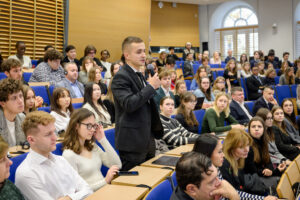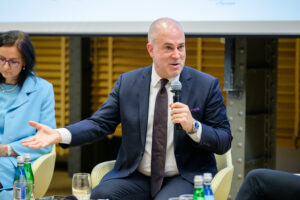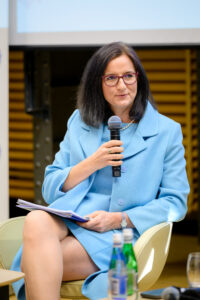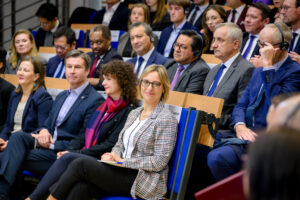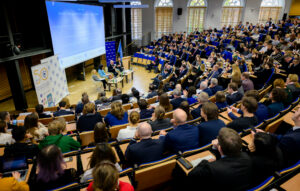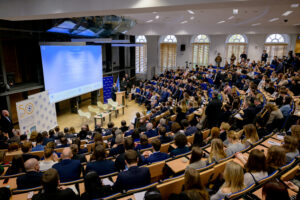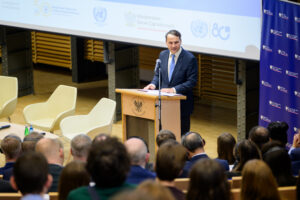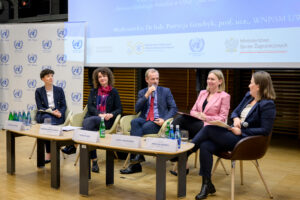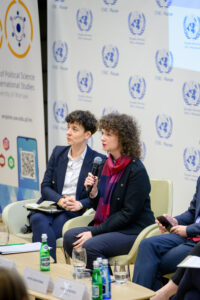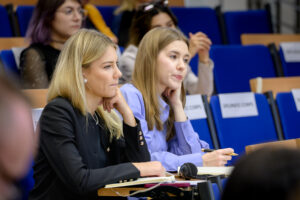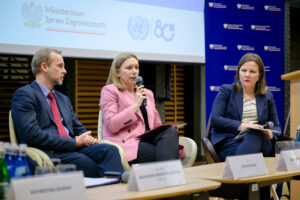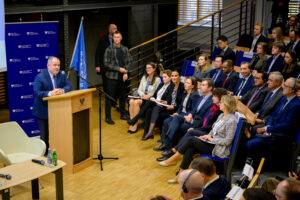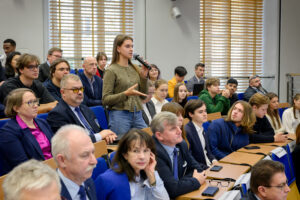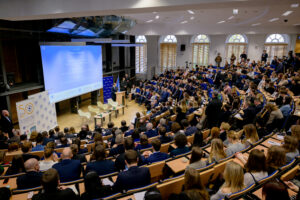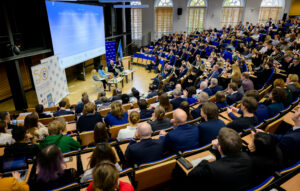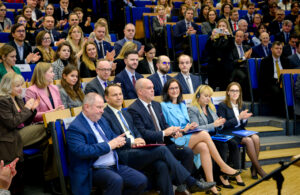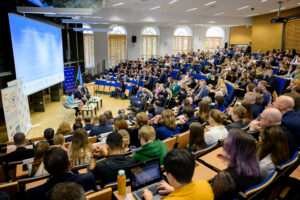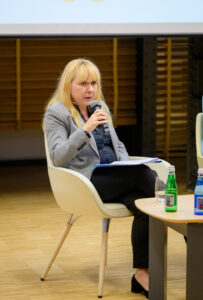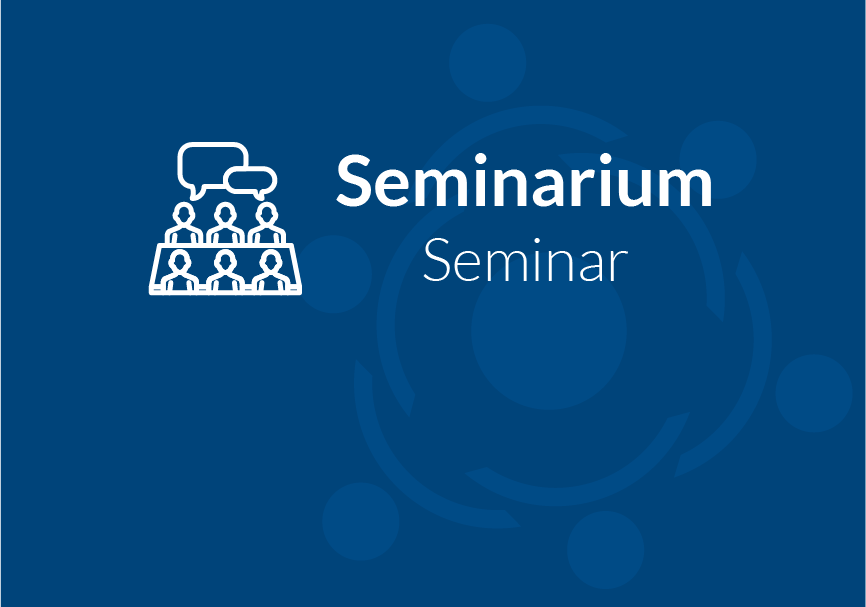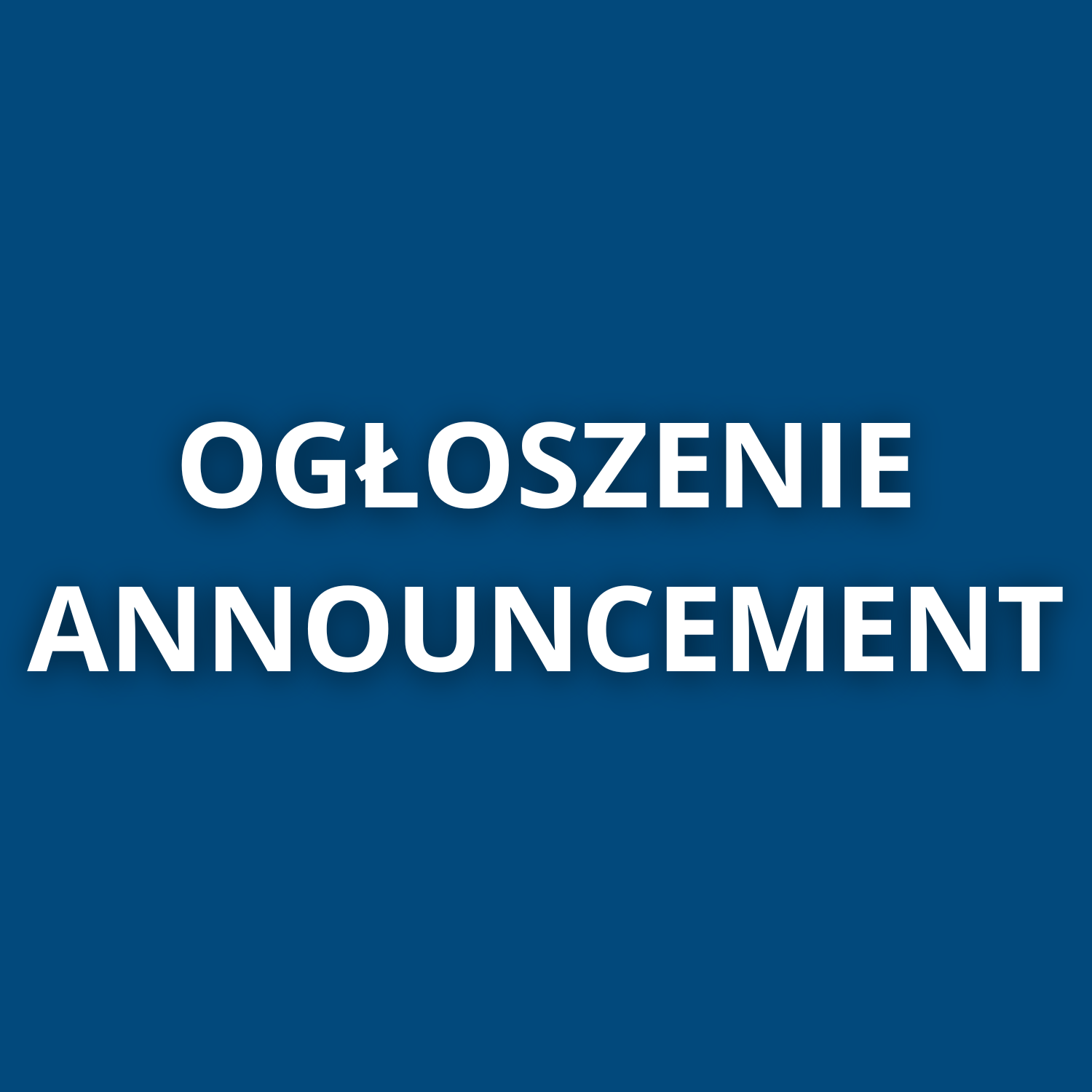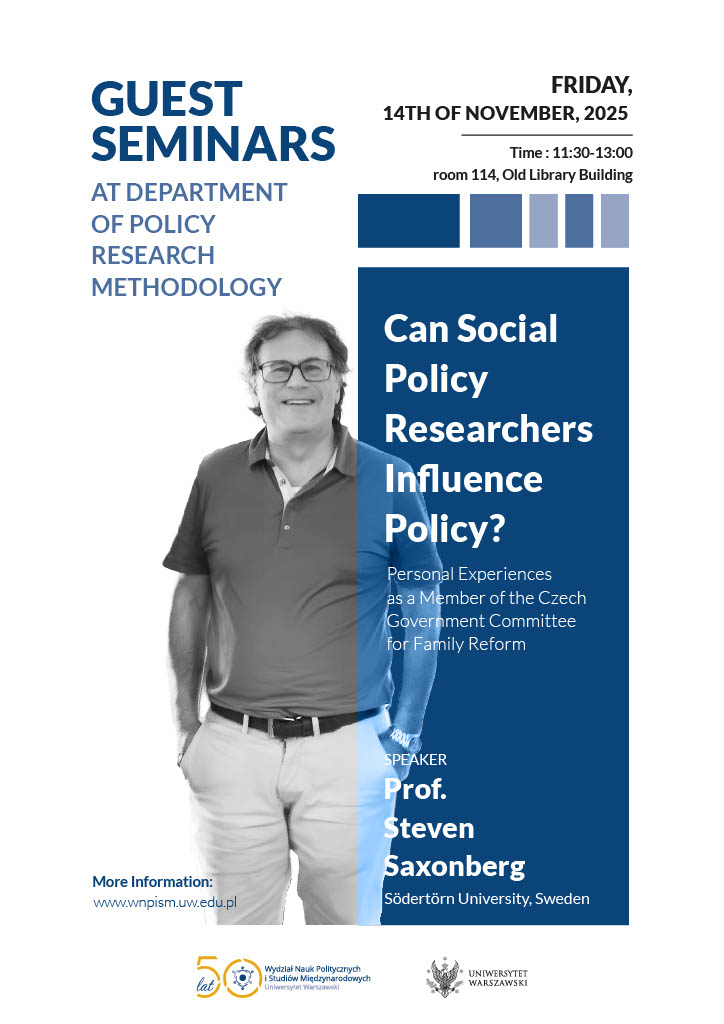80 Years of the United Nations: Towards a New World Order?

Academic Seminar: On the Disciplinary Distinctiveness and Identity of International Relations and Political Science and Administration
November 6, 2025
AI in Science and Research – New Horizons for Students and Scholars
November 7, 2025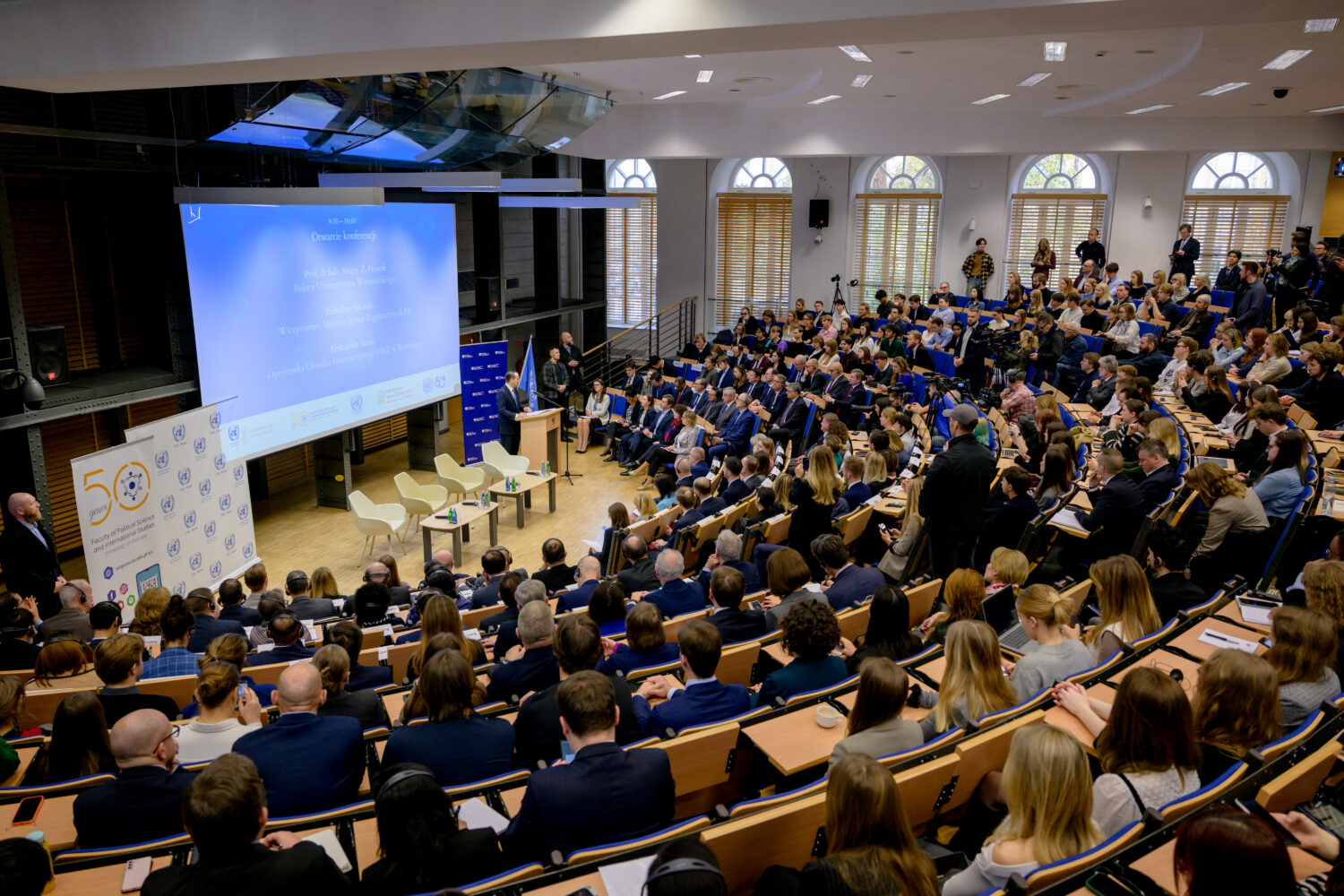
On November 5, 2025, the Old Library Hall of the University of Warsaw hosted the conference “80 Years of the United Nations: Towards a New World Order?”, organized by the Faculty of Political Science and International Studies (WNPiSM UW) in cooperation with the United Nations Information Centre in Warsaw (UNIC) and the Ministry of Foreign Affairs of the Republic of Poland.
The event gathered representatives of the academic community, diplomacy, international organizations, and public administration, becoming a space for reflection on the role and future of the United Nations in a changing global system.
Opening Session
The conference was opened by Prof. Alojzy Z. Nowak, Rector of the University of Warsaw, who emphasized the importance of dialogue and international cooperation in the face of today’s global challenges.
The keynote address was delivered by Radosław Sikorski, Deputy Prime Minister and Minister of Foreign Affairs of Poland, titled “Is It Worth Defending Multilateralism?”. In his speech, he underlined the crucial role of multilateral institutions as foundations of peace and international stability.
Aleksandra Szorc, Director of the United Nations Information Centre in Warsaw (UNIC), also addressed the audience, recalling the UN’s mission to build a world based on peace, human rights, and sustainable development.
Panel I: The Role of UN Agencies in the UN80 Reform Process
The first panel, moderated by Prof. Dorota Heidrich (WNPiSM), focused on the role of UN agencies in the ongoing reform of the Organization.
The discussion featured representatives of UN agencies operating in Poland:
-
Kevin Allen, Representative of the UN High Commissioner for Refugees in Poland (UNHCR),
-
Livia Styp-Rekowska, Head of Mission, International Organization for Migration in Poland (IOM),
-
Diana Vakarelska, National Coordinator, UNICEF Refugee Response Office in Poland.
The panel addressed the role of UN agencies – IOM, UNICEF, and UNHCR – in today’s complex international environment, where the UN and the entire multilateral system face multiple crises: financial constraints, declining trust, political polarization, and rising populism.
Speakers reflected on the need for effective coordination, inter-agency cooperation, and renewed trust in the multilateral system. The discussion also explored the future of the UN and possible directions of reform to strengthen its ability to respond to humanitarian, migration, and climate crises.
Panel II: 80 Years of Poland in the UN – Opportunities, Challenges, and Threats
The second panel, moderated by Prof. Patrycja Grzebyk (WNPiSM), focused on Poland’s role within the United Nations system.
Panelists included:
-
Agata Duda-Płonka, Director, Department of Global Affairs, MFA – “Poland’s Role in the UN and Future Plans”,
-
Katarzyna Szaran, Director, Department of Strategic Communication and Countering International Disinformation, MFA – “Disinformation as a Threat to Multilateralism”,
-
Prof. Agnieszka Bieńczyk-Missala (WNPiSM UW) – “From Hope to Helplessness: Reflections on Human Rights on the 80th Anniversary of the UN”,
-
Dr Patryk Kugiel (WNPiSM UW, PISM) – “The Global South in the UN: What Role at the Organization’s 80th Anniversary?”.
The discussion focused on the challenges facing Poland’s engagement in the UN, as well as opportunities for more active participation in promoting democracy, human rights, and peace.
Panel III: Youth Voices in the United Nations
The final panel, moderated by Agnieszka Homańska, Director of the Political Cabinet of the Minister of Foreign Affairs, offered an inspiring perspective from young professionals. Participants included:
-
Karol Zientek, Head of the Political Economy Unit, UN Assistance Mission in Afghanistan (UNAMA),
-
Hanna Miśniakiewicz, Youth Delegate to the 79th UN General Assembly,
-
Martyna Krzysztofińska, President, United Nations Association Poland (UNAP).
Each participant presented their career path during a session titled “My Road to the UN”, sharing personal experiences and insights. Their stories inspired the numerous students in attendance to engage in initiatives for peace, democracy, human rights, and civic participation from the very beginning of their studies.
Closing Remarks
The conference was summarized by the event’s co-organizers, Prof. Dorota Heidrich and Prof. Patrycja Grzebyk (WNPiSM), who thanked all participants and panelists for their active contributions and valuable discussion.
Special thanks were extended to Prof. Katarzyna Kołodziejczyk, Dean of WNPiSM, for her support and commitment, which made the conference possible.
The event reaffirmed that the idea of multilateral cooperation and international dialogue remains both relevant and essential – and that the future of the United Nations depends largely on the shared efforts of the next generations.




